
Through the foundation and in collaboration with Bishoftu Polytechnic College (BPC), we have created the first official training program in organic agriculture for young Ethiopians. Our aim is to develop employability and entrepreneurship of our students.
Our training is based on 3 pillars:

1. Organic horticulture
Organic production of vegetables, fruit and herbs promotes long-term soil fertility, clean water and biodiversity. It harnesses agricultural potential in a sustainable way.

2. Vocational training
Effective education and training can equip young people with the skills needed in the horticulture labour market today. We value dual track professional education systems and employ their principles (based on the Swiss apprenticeship model).

3. Entrepreneurship
An entrepreneurial mindset and the relevant skills are invaluable assets in our modern dynamic world. For this reason, we have integrated these skills into our curriculum to equip young people with the means to address the challenges of professional life with creativity.
A 3-year pilot project
- Development of a new curriculum in organic farming
- Personalised training for the agronomist teachers
- Development of specialised competences: English and entrepreneurship classes
- Improvement of the practical skills thanks to the development of the college’s infrastructure and internships
- Setting up an Income Generating Unit to ensure the sustainability of the organic horticulture training
- Creating links with labour markets, access to a network of professionals
At the end of the 3 year period (2021), BPC should have the capacity to continue offering the programme by itself.
Our history
The garden before
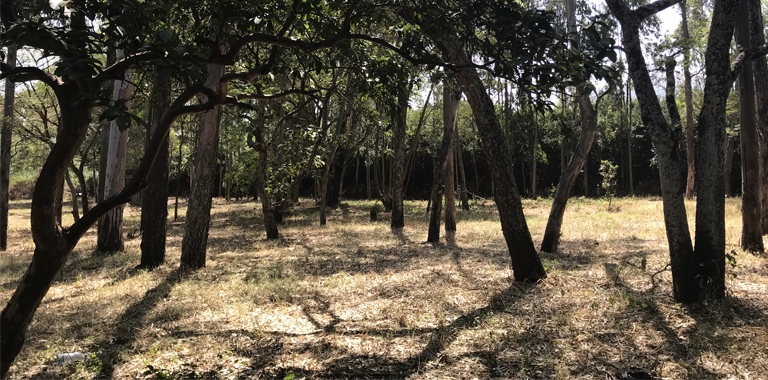
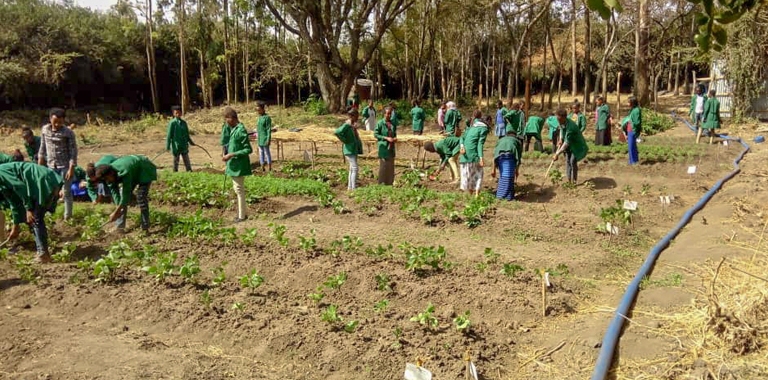
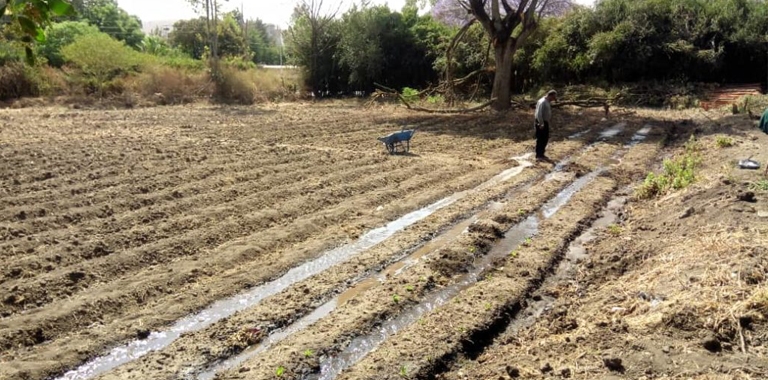
The garden today
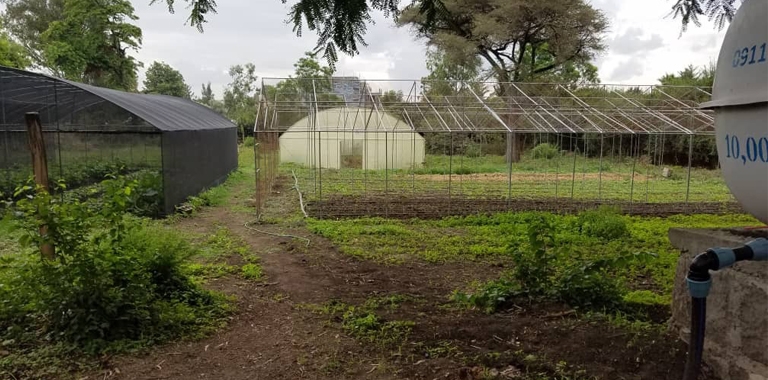
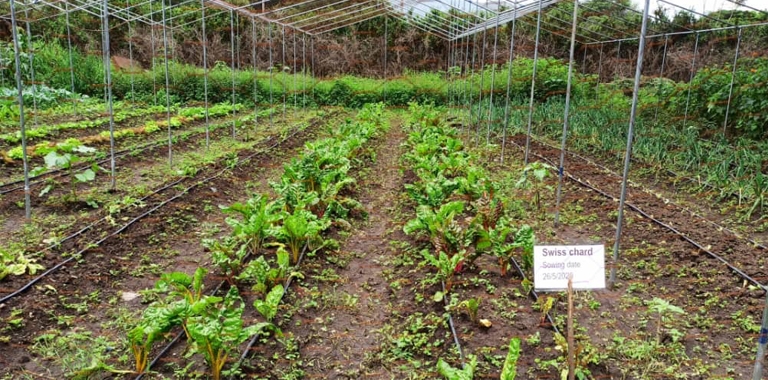
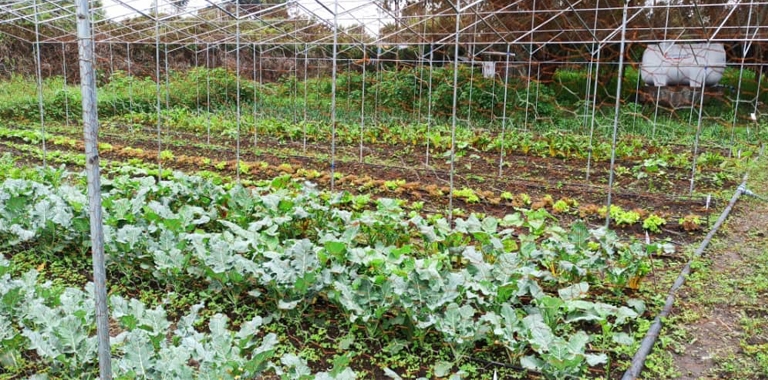
An enormous amount of work was undertaken to make the existing land viable for a horticultural operation. We built greenhouses, vegetable gardens, orchards, a nursery and changed the water pump. We also installed solar panels and a high-performance irrigation system.
Why organic farming?
Organic farming not only improves the environment and biodiversity, but also benefits farmers. This alternative to conventional agriculture holds the promise of a healthier world for future generations.
Today we know that conventional agriculture is one of the main drivers of biodiversity loss in the world. According to a study by the Intergovernmental Panel on Climate Change (IPCC), 21 to 37% of greenhouse gas emissions are caused by our food system.
While conventional agriculture is driving down the level of biodiversity worldwide, it has been proven that organic agriculture, on the contrary, increases this biodiversity. According to INRAE (National Institute for Agricultural Research), “plots of land cultivated in organic agriculture would support levels of biodiversity about 30% higher than fields under conventional agriculture”.
Organic farming is also much healthier. Indeed, organic farming bans the use of chemical pesticides, whereas intensive agriculture uses more and more of them (+73% increase in pesticide use worldwide between 1990 and 2015, again according to INRAE). In addition to improving consumer health, not using chemicals protects soil and water quality.
Finally, organic farming also benefits farmers and the economy in general. Indeed, organic farming consumes less energy, implements a circular system of resource reuse and allows for higher yields for farmers. It has been proven that investments in organic farming are lower than on farms using chemicals (see table below). Moreover, according to a UN study, organic farms create 30% more jobs per hectare compared to conventional farms.
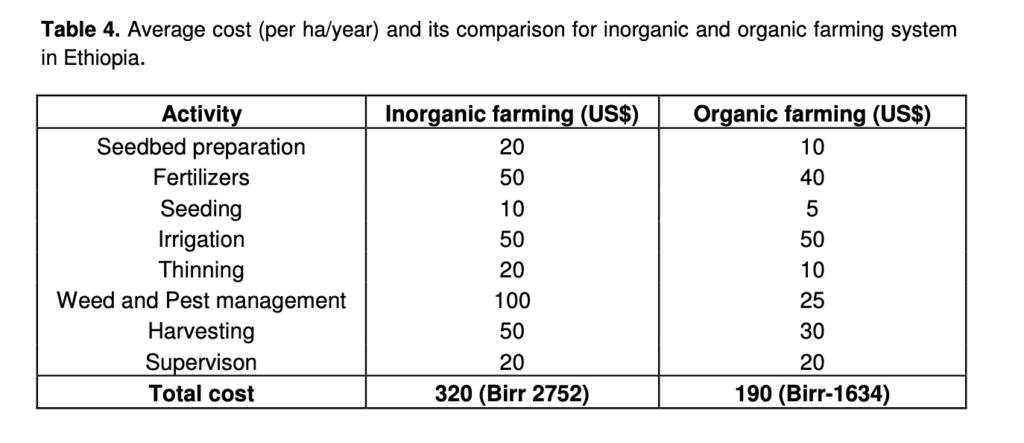 « Organic farming and sustainable development in Ethiopia », Scientific Research and Essay Vol. 2(6), pp. 199-203, June 2007
« Organic farming and sustainable development in Ethiopia », Scientific Research and Essay Vol. 2(6), pp. 199-203, June 2007
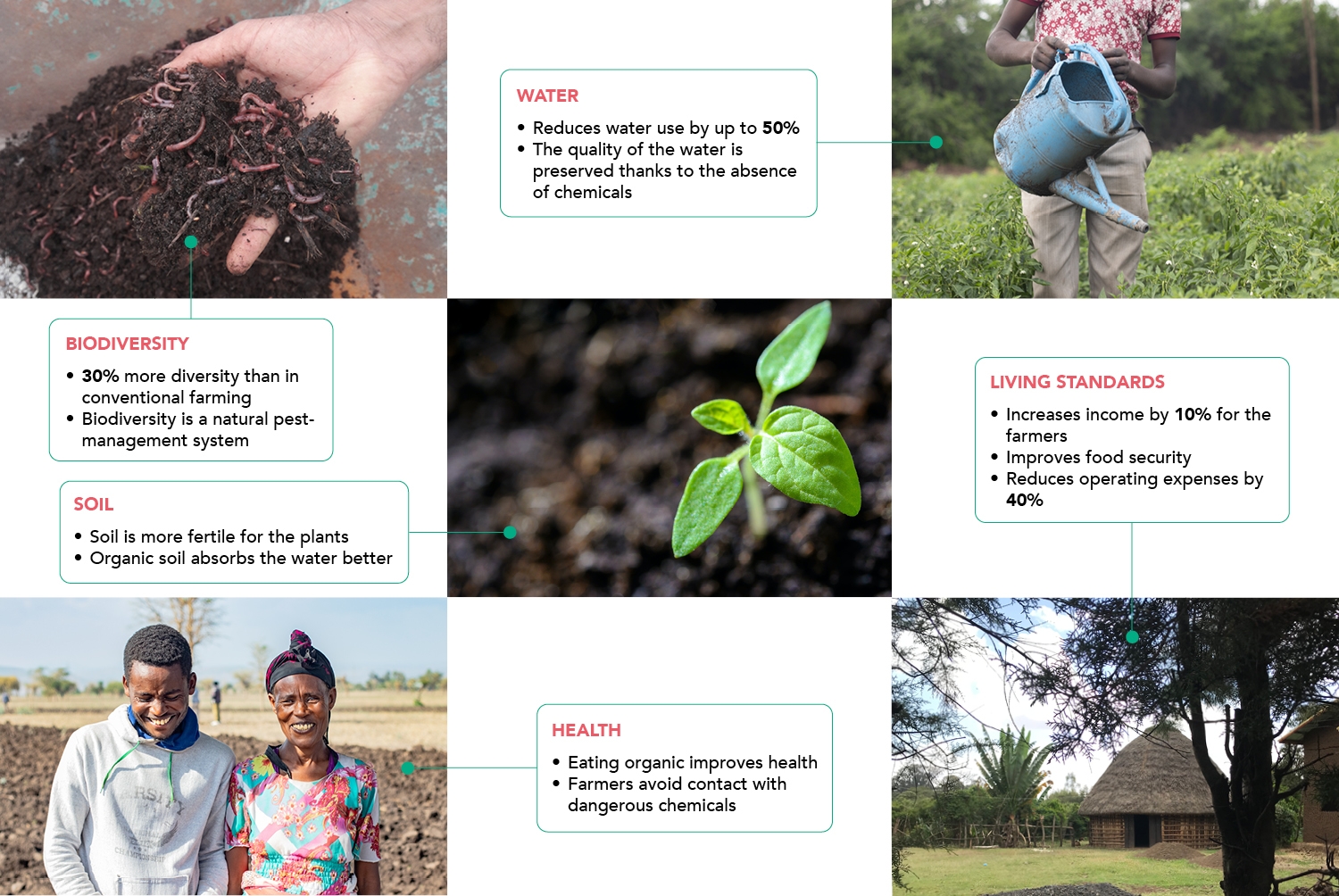
Why we chose Ethiopia (Bishoftu) ?
- For its promising market conditions, access to the dynamic and growing capital.
- For its favourable weather conditions, adequate water, fertile soils and agricultural traditions.
- Existing and growing demands for organic vegetables and herbs.
- Ethiopian soil is very fertile.
- 80 percent of Ethiopians are farmers.
Why we work with a TVET* college ?
- To enhance the capacity of the existing educational system to meet the demand for qualified labour and benefit from the existing administrative infrastructure.
- To ensure that the new programme fits the market needs and graduates receive a formally recognized certificate of completion.
- To strengthen the link between the private sector and the educational system.
* Technical and Vocational Education and Training
